Abstract
Mecillinam is an amidino penicillinate derivative with a broad spectrum of activity against many gram-negative bacilli. Moreover, marked in vitro synergy against these organisms occurs when mecillinam is combined with other beta-lactam antibiotics. The purpose of this study was to determine the pharmacokinetic disposition of this antibiotic. A single dose of 10 mg/kg was administered to 12 healthy volunteers as a 15-min intravenous infusion. Multiple plasma and urine samples were collected at frequent intervals for 8 and 24 h, respectively. Plasma samples were assayed for mecillinam by using a specific high-pressure liquid chromatographic assay developed in our laboratory. Peak plasma levels ranged from 34 to 80 micrograms/ml, and after 4 h, plasma levels were 0.7 to 1.9 microgram/ml. The mean terminal plasma half-life was 51.1 +/- 8.6 min. The mean steady-state volume of distribution was calculated to be 0.23 +/- 0.04 liter/kg. The mean plasma and renal clearances were 3.5 +/- 0.4 and 2.5 +/- 0.4 ml/min per kg, respectively. The mean percentage of the dose excreted unchanged in the urine at 4 h was 67 +/- 5%; 71 +/- 6% was recovered in 24 h. Urine concentrations at 4 h were far above the minimum inhibitory concentration for susceptible gram-negative organisms.
Full text
PDF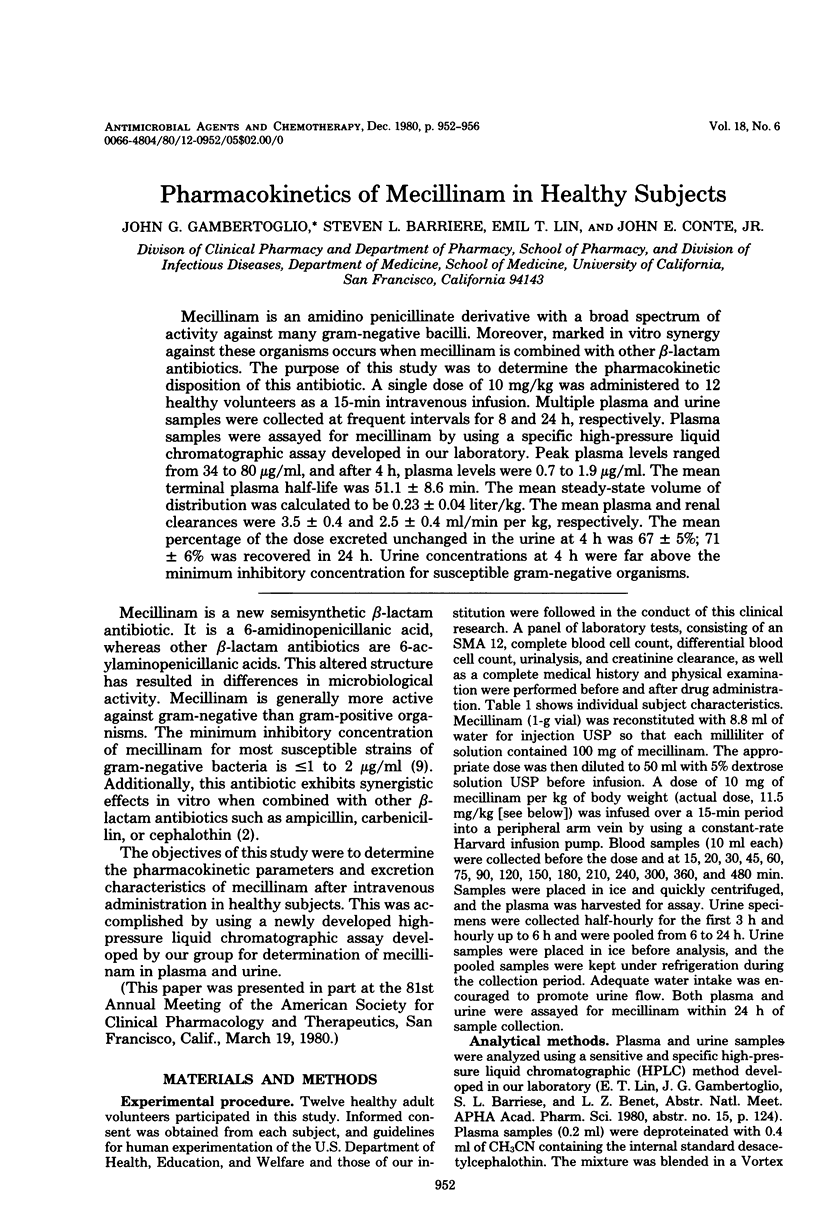
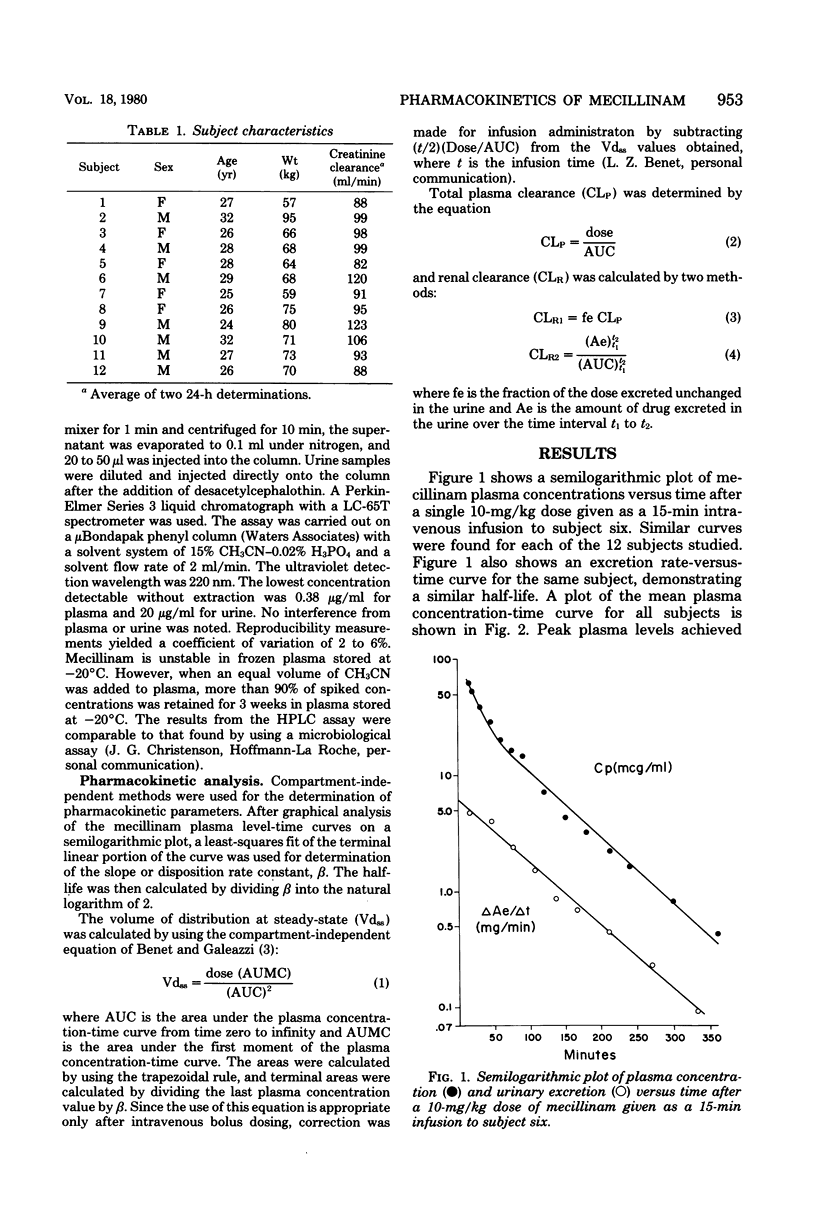
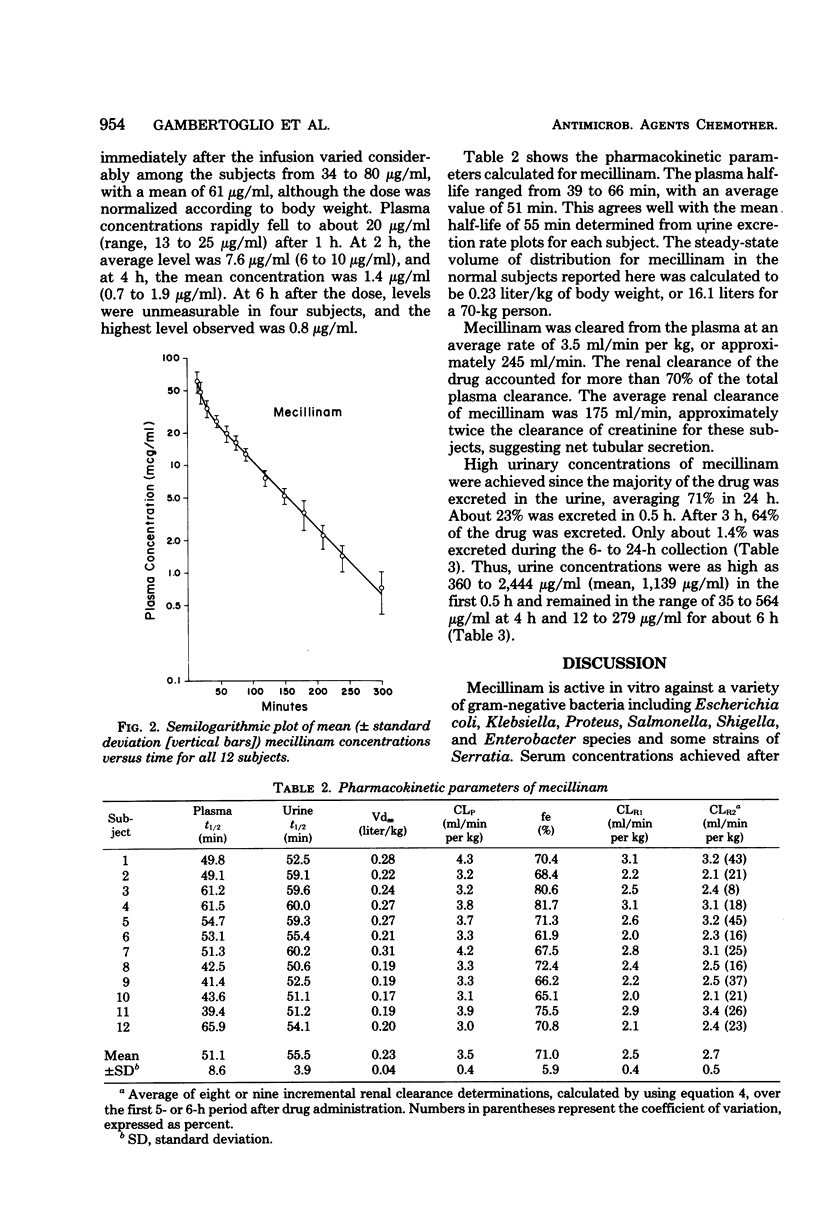
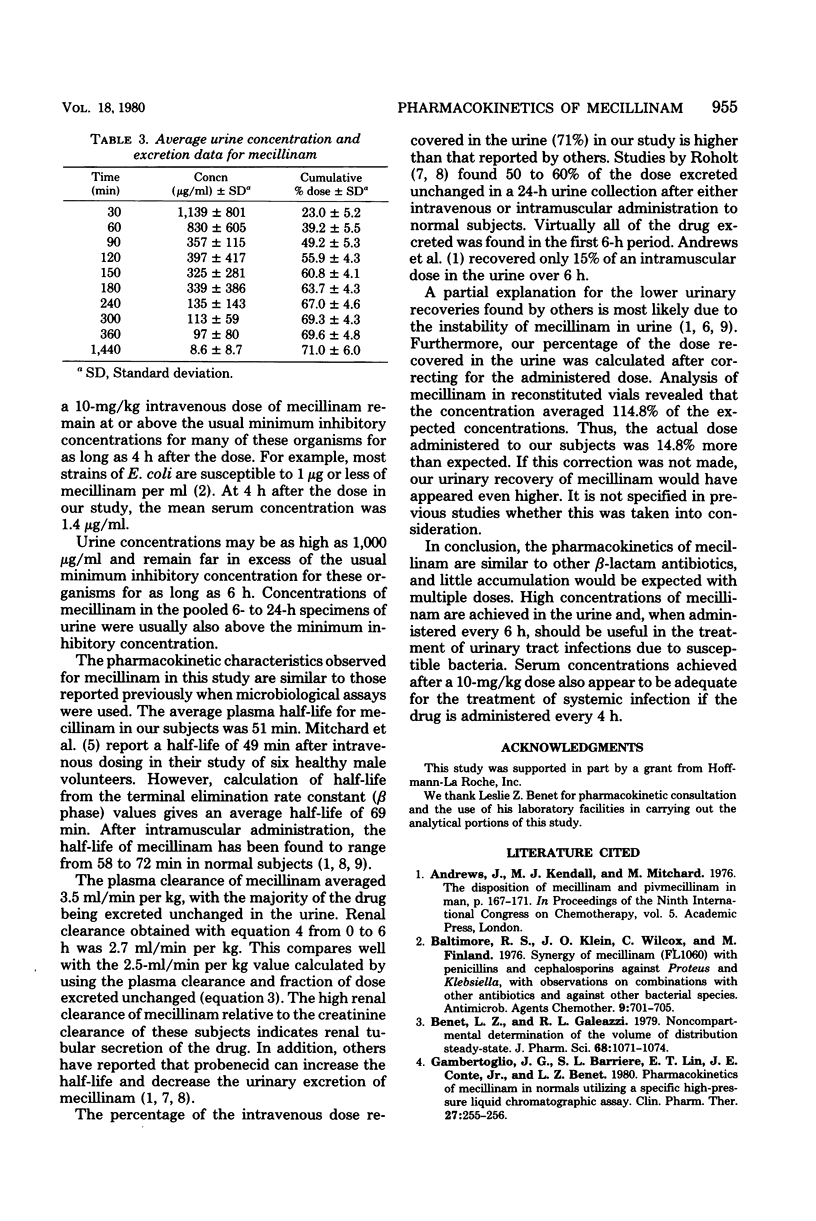
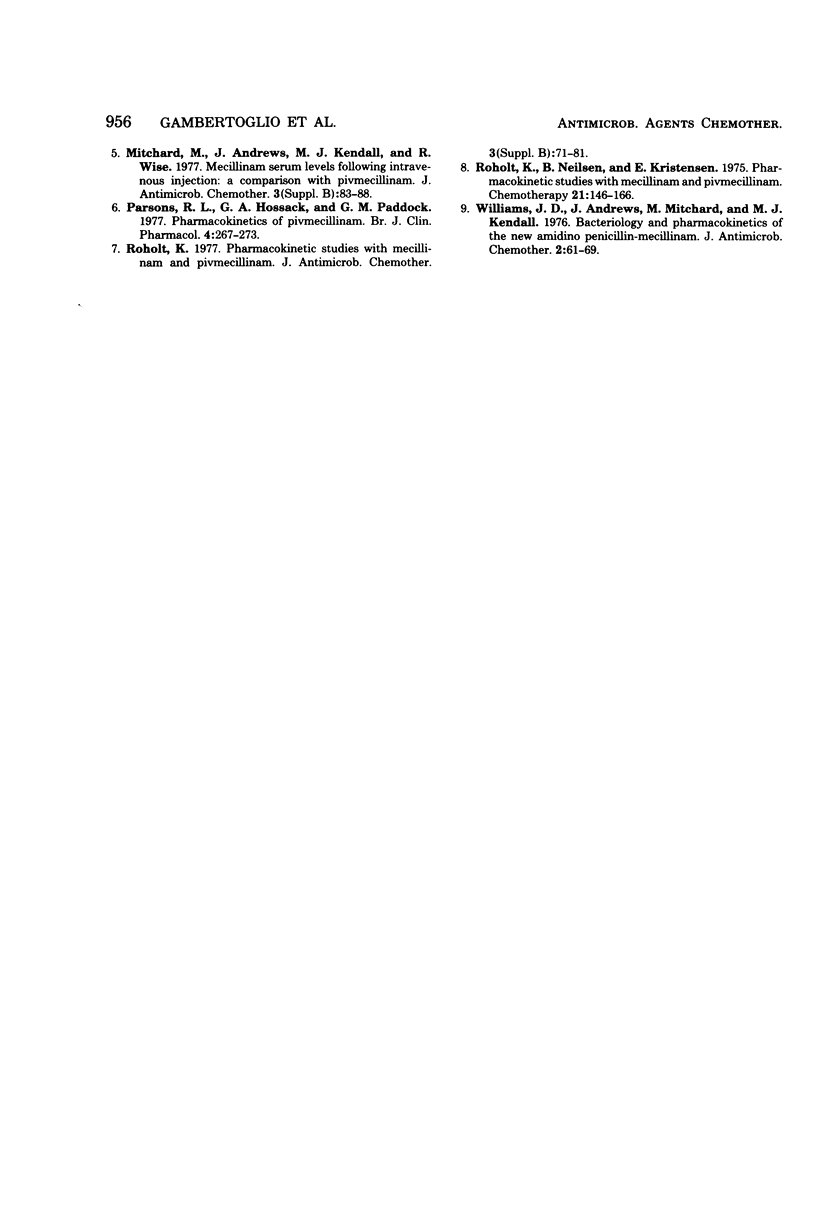
Selected References
These references are in PubMed. This may not be the complete list of references from this article.
- Baltimore R. S., Klein J. O., Wilcox C., Finland M. Synergy of mecillinam (FL1060) with penicillins and cephalosporins against Proteus and Klebsiella, with observations on combinations with other antibiotics and against other bacterial species. Antimicrob Agents Chemother. 1976 Apr;9(4):701–705. doi: 10.1128/aac.9.4.701. [DOI] [PMC free article] [PubMed] [Google Scholar]
- Benet L. Z., Galeazzi R. L. Noncompartmental determination of the steady-state volume of distribution. J Pharm Sci. 1979 Aug;68(8):1071–1074. doi: 10.1002/jps.2600680845. [DOI] [PubMed] [Google Scholar]
- Mitchard M., Andrews J., Kendall M. J., Wise R. Mecillinam serum levels following intravenous injection: a comparison with pivmecillinam. J Antimicrob Chemother. 1977 Jul;3 (Suppl B):83–88. doi: 10.1093/jac/3.suppl_b.83. [DOI] [PubMed] [Google Scholar]
- Parsons R. L., Hossack G. A., Paddock G. M. Pharmacokinetics of pivmecillinam. Br J Clin Pharmacol. 1977 Jun;4(3):267–273. doi: 10.1111/j.1365-2125.1977.tb00711.x. [DOI] [PMC free article] [PubMed] [Google Scholar]
- Roholt K., Nielsen B., Kristensen Pharmacokinetic studies with mecillinam and pivmecillinam. Chemotherapy. 1975;21(3-4):146–166. doi: 10.1159/000221856. [DOI] [PubMed] [Google Scholar]
- Roholt K. Pharmacokinetic studies with mecillinam and pivmecillinam. J Antimicrob Chemother. 1977 Jul;3 (Suppl B):71–81. doi: 10.1093/jac/3.suppl_b.71. [DOI] [PubMed] [Google Scholar]
- Williams J. D., Andrews J., Mitchard M., Kendall M. J. Bacteriology and pharmacokinetics of the new amidino penicillin-mecillinam. J Antimicrob Chemother. 1976 Mar;2(1):61–69. doi: 10.1093/jac/2.1.61. [DOI] [PubMed] [Google Scholar]


